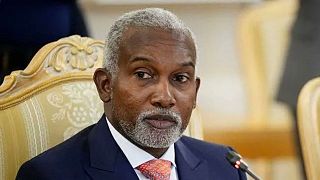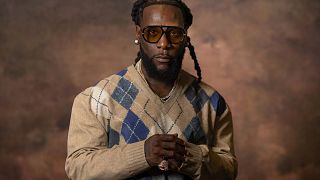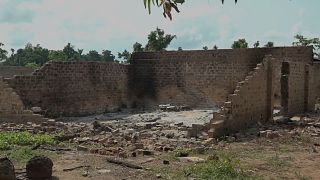Nigeria
Voting officially kicked off in Nigeria at 07:30 am GMT, Saturday (Feb. 25).
Nearly 90 million people are eligible to cast a ballot to elect the country’s next president and choose their representatives in Parliament.
The vote comes at a time when Africa's most populous democracy grapples with a security crisis, a sluggish economy and cash and fuel shortages.
Around 400,000 police and troops will be deployed to protect voters. Polling stations are set to close at 1:30 PM GMT but all voters on queue before 1 can vote the electoral commission said.
The body gave no timeline for results. However, under a 2022 law, the official results have to be confirmed within 14 days of the ballot.
For the first time in Nigeria's modern history, 3 candidates have emerged in the race for the top office usually dominated by 2 parties.
With Buhari stepping down after two terms in office, the APC's Bola Tinubu, 70, a former Lagos governor and political kingmaker, says "It's my turn" for the presidency.
He faces a familiar rival -- PDP candidate and former vice president Atiku Abubakar, 76, who is on his sixth bid for the top job.
But the emergence of a surprise third candidate appealing to young voters, Labour Party's Peter Obi, 61, has thrown the race open for the first time since the end of military rule in 1999.
"This coming government should try and correct all the wrongs that this administration and other administrations have made," said Lagos vendor Blessing Asabe, 37.
Key factors?
To win the presidency, a candidate must get the most votes, but also win 25 percent in two-thirds of Nigeria's 36 states.
The rules reflect a country where a mostly Muslim Nigerians live in the north and Christians in the south. The nation's three main ethnic groups across regions: Yoruba in southwest, Hausa/Fulani in the north and Igbo in the southeast. Some experts have said voting also often falls along ethnic and religious lines.
This time, Tinubu is a southern Yoruba Muslim, Atiku is an ethnic Fulani Muslim from the northeast and Peter Obi is a Christian Igbo from the southeast.
The presidential elections have in the past often been marked by violence, ethnic tensions, vote-buying and clashes between supporters of rival parties.
In 2019, hours before polls opened, the Independent National Electoral Commission (INEC) postponed the election by a week because of problems delivering election materials.
Today, most experts see INEC as being more prepared. It has introduced biometric voter IDs to help prevent fraud and results will be transmitted electronically.
If no candidate wins, a runoff will take place between the two frontrunners, an unprecedented outcome that some analysts say is a possibility this time around. If a runoff is declared, the vote has to take place within 21 days.













01:08
Dancehall superstar Shatta Wale urges young people to back President Mahama
Go to video
U.S. slashes visa duration for some African nationals amid policy shift
02:05
WAFCON: Super Falcons fans optimistic about the team's performance
01:06
Brazil launches major security operation ahead of BRICS Summit
01:30
Nigerian singer Tems launches Leading Vibe Initiative to support women in music
01:09
Guinea presents draft for new constitution, referendum set for September